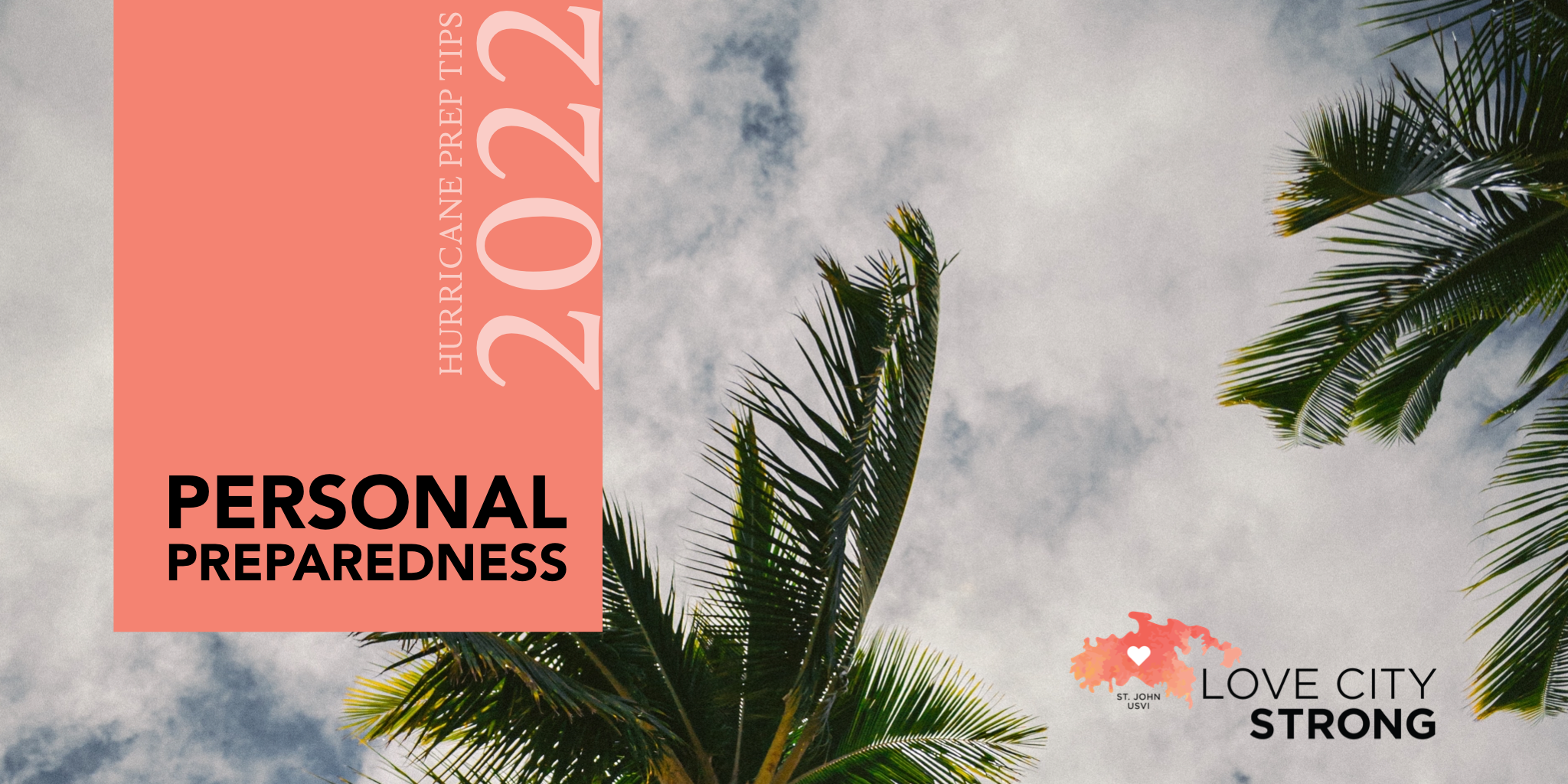Personal Preparedness : Tips for 2022 Hurricane Season

We often focus on community preparedness here at Love City Strong, but resilience really begins with personal preparedness.
When you’re on a plane and the flight attendant is giving the safety lecture, they always tell you, in the event of an emergency, place your mask on first before helping those around you. Personal preparedness functions in much the same way. By taking action early to ensure that you are as ready as possible, you make yourself more available to help your family, friends, and neighbors in the event of a disaster.
Here are a few tips to help improve your overall readiness, particularly during hurricane season:
Know your needs
Do you have dietary restrictions? Are you on a daily medication? Do you struggle to function without that morning cup of coffee? All of these are things you can plan for in advance. Make sure you have the food you need on hand, and speak to your doctor about how to safely and responsibly build an emergency supply of medication. If coffee is your lifeblood, include a camp stove and a coffee press in your emergency kit!
Know your surroundings
Maybe your home is surrounded by trees, or maybe you’re exposed to a breeze even on a calm day. Understanding your surroundings is the first step to understanding your risk. Check your home and property for potential hazards, and take steps to address them where necessary.
Know the process
Make sure you have emergency contact information written down and readily available. Include family, friends, and neighbors as well as work, insurance, and emergency numbers. Do you have a pet? Include your vet’s number as well.
Plan financially
Even if you can’t spare much, it’s important to try and set aside some emergency cash to have on hand. Whether you save your spare change and singles all year round, or team up with your roommates to start a household emergency fund, or have a savings account that serves the purpose, find a strategy that’s manageable for you and begin the journey. For more information about this and other aspects of financial preparedness, check out this article on Ready.gov.
Think about the “what ifs”
Take a few minutes and imagine what might happen if a storm came through tomorrow. Would you lose power? Would your car be secure? Would you need to reconnect with your family at a predetermined rally point, or would you likely be together? Use the preparedness planning process to poke holes in all the scenarios you can think of, and revise your plan accordingly.
Of course personal preparedness includes many things that we talk about in the context of community preparedness as well. Building a kit, making a plan, strengthening your home… all familiar concepts. The important thing to remember is to address these things in ever expanding circles, starting with yourself, then your family, then neighbors and colleagues, and the greater community. Following these steps now will make you much more useful to them in the event of a disaster!
